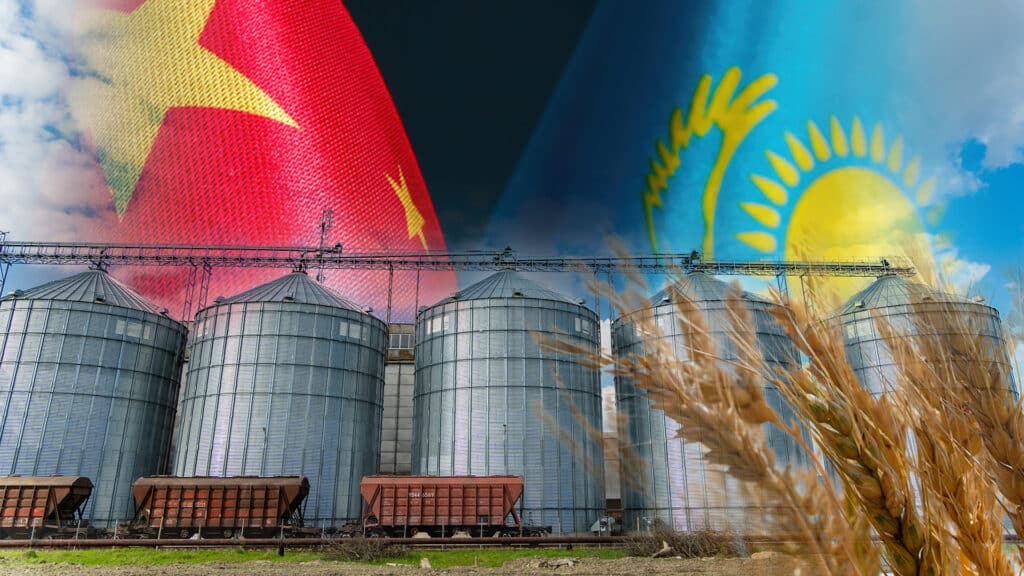Kazakhstan stops grain export to China after import regulations change

Kazakhstan announced a halt to grain trade with China after the Chinese partners introduced new regulations on imports. The Ministry of Agriculture of the Republic of Kazakhstan sees this as a reason for a drop in the price of wheat.
According to the Ministry of Agriculture, grain export contracts lost $20 within a week, possibly because of a heavy yield. Referring to the Bureau of National Statistics, there were 13.1 million hectares of wheat sown, and 264,100 hectares of fall wheat are left as of July 2024.
As of July, a kilogram of wheat costs $0.26 ($215.81 per ton). The Ministry of Agriculture expects a yield value of 17 million tons at the end of 2024. In 2022, farmers harvested 16.4 million tons of grain, but in 2023 the yield fell to 12.11 million tons due to bad weather conditions.
«The market begins to determine the starting prices for a new season. Unfortunately, it has to do so under pressure and is affected by adverse factors. It turns out there was more wheat sown than expected, which once again supports the prediction of a heavy yield, resulting in lower prices. Trade with PRC also stopped for an indefinite period. … To resume trading, we’ll need time and traders’ efforts,» the Ministry of Agriculture explained.
The Agency clarified that the heavy yield and trade stop with China have strengthened Central Asian customers’ trading positions. Referring to the Ministry of Agriculture, at the current situation in the domestic market, considering world prices, soft wheat with fibrin content of 2% or more shall cost no more than $0.17 per kilo. Today, one kilogram of grain from the elevator price varies from $0.13 to $0.26 in the domestic market. There have been no deals at such a price as of August. The Ministry of Agriculture recommends selling wheat, as it did a week ago when wheat prices were at the same level.
According to Eldala.kz media outlet, citing the grain traders, Chinese customs totally forbid grain import for the factories registered in the bonded area. At the same time, Kazakhstan never received any official notifications from China. The bonded area is in Xinjiang Uygur Autonomous Region, where wheat is delivered through the Dostyk-Alashankou and Altynkol-Khorgos border points. The advantage for Chinese companies in this special economic zone is that they can import wheat without paying 65% duty as in other regions of the country.
The farmers reported last year as the worst in recent memory. They claim that not only has the yield dropped, but half of the grain became improper for further food-processing due to heavy rains. This means that the product could not be used for the production of bread and flour. Weather volatility resulted in price shocks on the Kazakhstani wheat in the international market.
For instance, third- and fourth-class grain prices rose to $380-$400 per ton after September 15. After heavy rains in October and November, the price dropped to $250-$260 per ton. Off-grade grain prices were also low. At the beginning of December, it was sold at $150 per ton. Because of this, farmers suffered losses and experienced a shortage of food wheat.
Within the last decade, 2022 is considered the best yielding year. Kazakhstani farmers managed to harvest 16.4 million tons of wheat that year, although the Ministry of Agriculture expected 13.4 million tons. The heavy yield and active wheat import from Russia significantly pushed the prices down from $377.40 to $314.50 per ton. That situation also led to extensive carryover stocks. Referring to the Bureau of National Statistics, the planting acreage of cereal crops and legumes had been shrinking until 2000 and since then has been slowly expanding.

